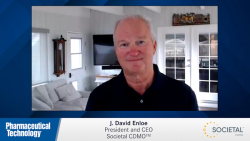
OR WAIT null SECS
- About Us
- Advertise
- Contact Us
- Editorial Info
- Editorial Advisory Board
- Do Not Sell My Personal Information
- Privacy Policy
- Terms and Conditions
© 2026 MJH Life Sciences™ , Pharmaceutical Technology - Pharma News and Development Insights. All rights reserved.
Time is of the Essence
A short time ago, I wrote about the Transforming the Regulatory Environment to Accelerate Access to Treatments Act, (TREAT).
A short time ago, I wrote about the Transforming the Regulatory Environment to Accelerate Access to Treatments Act, (TREAT), legislation proposing to modify the regulatory environment to speed the approval of drugs intended to treat life-threatening conditions for which there are no effective therapies. This week brings us the Faster Access to Specialized Treatments (FAST) Act, introduced by Rep. Clifford Stearns (R-FL) and Rep. Ed Towns (D-NY) to the House Committee on Energy and Commerce on Mar. 5, 2012. FAST proposes to amend section 506 of the Federal Food, Drug, and Cosmetic Act to expedite approval of drugs for serious or life-threatening diseases or conditions. Rep. Stearns explains in a press release, “This measure codifies much of the Accelerated Approval regulations into statute and modernizes the program to reflect the amount of medical and scientific innovation that has occurred in the past 20 years.” The aim of the legislation is to encourage FDA to make full use of the accelerated approval pathway to speed the approval of life-saving drugs.
FAST enjoys the support of The National Organization for Rare Disorders (NORD) and of the biotech industry group, BIO. Jim Greenwood, president of BIO, said in a release, “Like the Transforming the Regulatory Environment to Accelerate Access to Treatments (TREAT) Act, S. 2113, which was introduced by Senator Kay Hagan (D-NC), the FAST Act will update the Accelerated Approval process at the FDA so that it works in a transparent, predictable way for all therapies intended to treat debilitating conditions for which there is an unmet medical need. Making this change will better enable biotechnology companies to bring new, safe and effective treatments and cures to patients in need at the earliest point in time.”
Time is of the essence for those with rare diseases or with other conditions for which there are no effective therapies. Certainly, FDA should do its part to get therapies to market in the shortest time possible, and the introduction of two similar bills in such a short time span underscores the public’s impatience with the drug development process. However, human physiology is complex, drug development is hard, and FDA always has to balance speed with safety. Will urging FDA to go faster bring the desired results?


